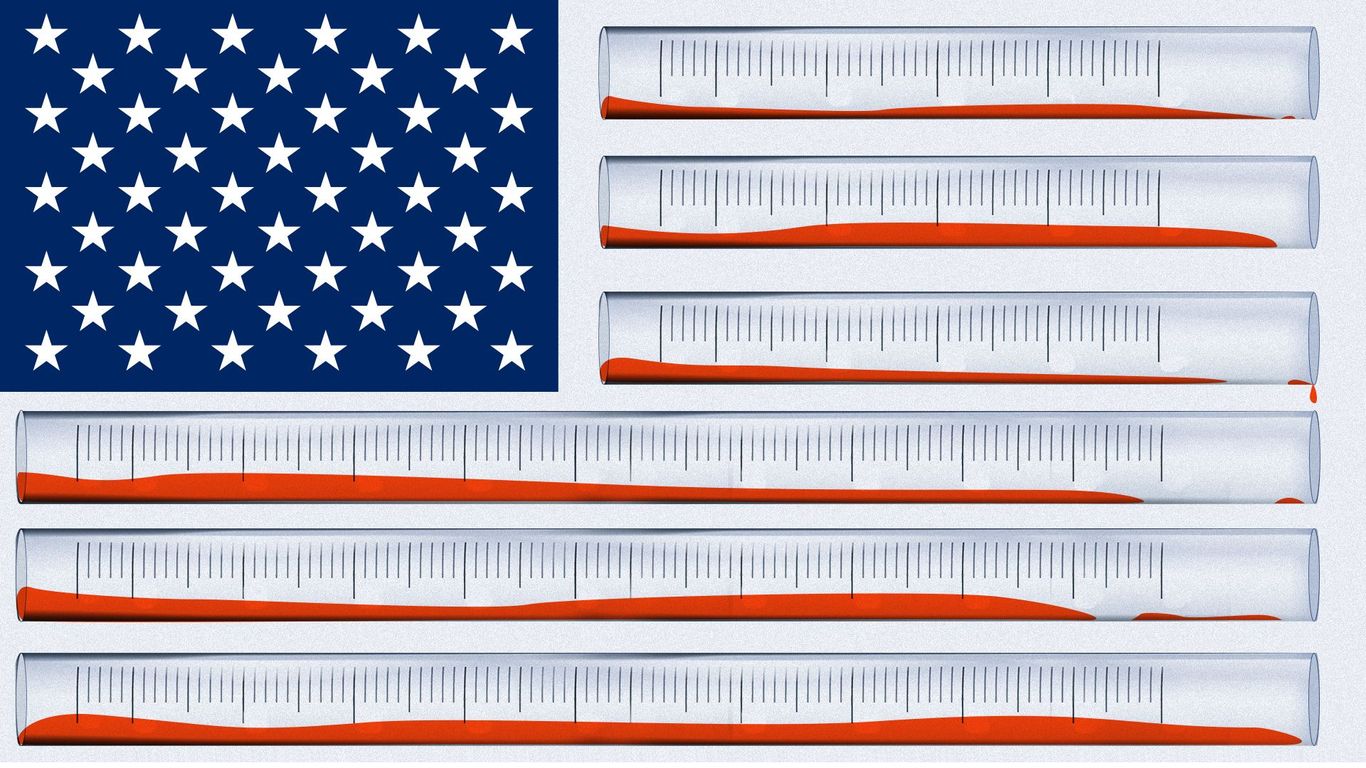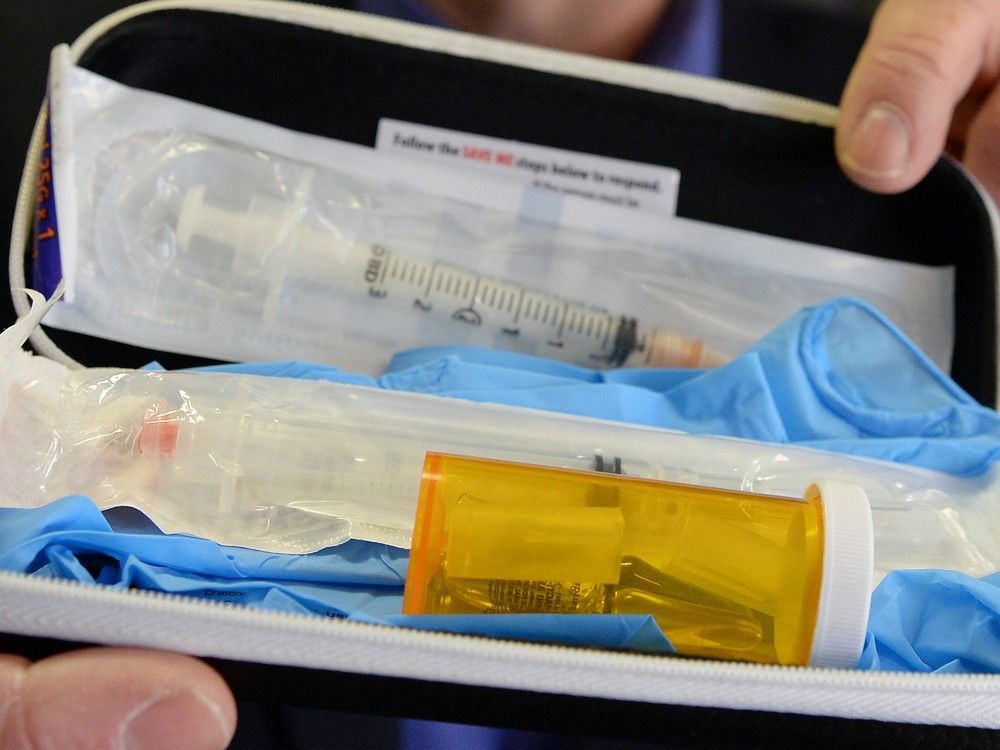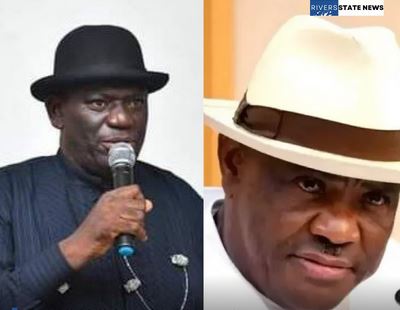
The U.S. is freezing research funding, canceling projects, firing thousands of federal scientists and creating an atmosphere of uncertainty that scientists warn could slam the brakes on progress.
Why it matters: America has enjoyed decades of dominance in science and technology — plus the economic boom, medical advancements and global influence that come with it.Now, as the U.S.

's global lead is contested and competition for the world's top talent gets stiffer, the Trump administration is disrupting the system that has propelled the country."There are some immediate effects. People will be laid off, talent will go elsewhere, some research groups will shut down," says Chris Impey, an astronomer at the University of Arizona.
"But over the years it will have a profoundly negative impact. You're creating an opportunity for other countries to happily start moving in, poaching our talent and riding the escalator of scientific progress."Stunning stat: 40% of U.
S.-affiliated Nobel Prize winners in the sciences — physics, chemistry and medicine — between 2000 and 2023 were immigrants.Funding resources, top-notch universities, research freedom and a diverse culture that supports innovation are among the factors that have made the U.
S. a global magnet for scientists.Zoom in: Some of those factors are in flux.
For example, in 2022, the NIH spent 25 times more on grants for health research than the next largest funder, a U.K. charity, according to Nature.
But NIH funding has dropped by more than $3 billion since Inauguration Day, compared to the same period last year, as the Trump administration cancels research programs and halts funding, the Washington Post reports.Some universities are accepting fewer graduate students amid funding uncertainty, and some professors are performing their own risk calculus to be sure they can support students.Changes at the Department of Health and Human Services, including the centralization of peer review for grants funded by the National Institutes of Health, are raising concerns about political interference in federal science-funding decisions.
The stakes: The U.S. could see a two-fold brain drain: fewer foreign scientists coming to America, and American talent heading to other countries.
Three-quarters of the 1,600 scientists surveyed in a new poll from Nature said they are considering leaving the U.S. due to the disruptions to science caused by the Trump administration's early actions.
"The developments in the U.S. are a huge opportunity for Germany and Europe.
I know that a lot of people are considering leaving." Ulrike Malmendier, a German economist who is a professor at the University of California, Berkeley, told Germany's Funke media group.France's Aix Marseille University has earmarked millions of dollars to hire U.
S. scientists. Université Paris Sciences et Lettres wants to recruit U.
S. researchers who work in projects in areas targeted for cuts by the Trump administration, including climate science and gender studies, the N.Y.
Times reports.The upheaval has also been an opportunity for China and Russia: Both are allegedly trying to recruit former federal scientists.The other side: White House and DOGE officials argue changes to the system will boost research, not stifle it.
For example, they say funding switch-ups, like cutting the dollars NIH provides institutions for overhead costs, will free more funds for science.But universities say these administrative costs are a critical piece of conducting research."The Trump Administration is committed to achieving and maintaining unquestioned and unchallenged global technological dominance," a White House official said.
"We need fresh approaches to redefine how discovery happens in America to ensure our ecosystem draws talent, celebrates merit, and enables our scientists to focus on meaningful work."The big picture: Years before the funding freezes and firings, there were indications the U.S.
lead in science was shrinking — while China was advancing in AI, biotech, space and other fields.The U.S.
share of global R&D spending decreased while total spending grew.The number of international patents filed from inventors in China surpassed applications from the U.S.
in 2021.In 2019, China for the first time awarded more doctorate degrees in science and engineering than the U.S.
What to watch: Scientists, CEOs, university leaders and policymakers earlier this year called for updating the U.S. scientific enterprise to compete in the 21st century.
Recommendations from that group and others include immigration reform, changes in tax credit and code that could spur private sector R&D, reducing the administrative burden on scientists, and increased investment in AI, biotech and other fields.President Trump has also tasked the newly confirmed head of the White House's Office of Science and Technology Policy, Michael Kratsios, with revitalizing America's science and technology enterprise, referring to a similar task FDR gave to his science adviser, Vannevar Bush.Bush advocated for federal investment in basic science, which led to the creation of the National Science Foundation and established the government pillar of the very scientific system that is currently in turmoil.
.















